I considered for a while there making some sort of artful statement in how I talked about Virginia by making the entire article about it nothing but images, like the way that the piece uses a lack of speech as a technique for or maybe like, deliberate removal of specific word choices and instead forces you to start doing this Rosetta-stone-like assumption of what you’re going through, so like, you don’t know for sure what’s happening, but you’re left with a very clear understanding of what you experienced or the way that the jump cut, a technique 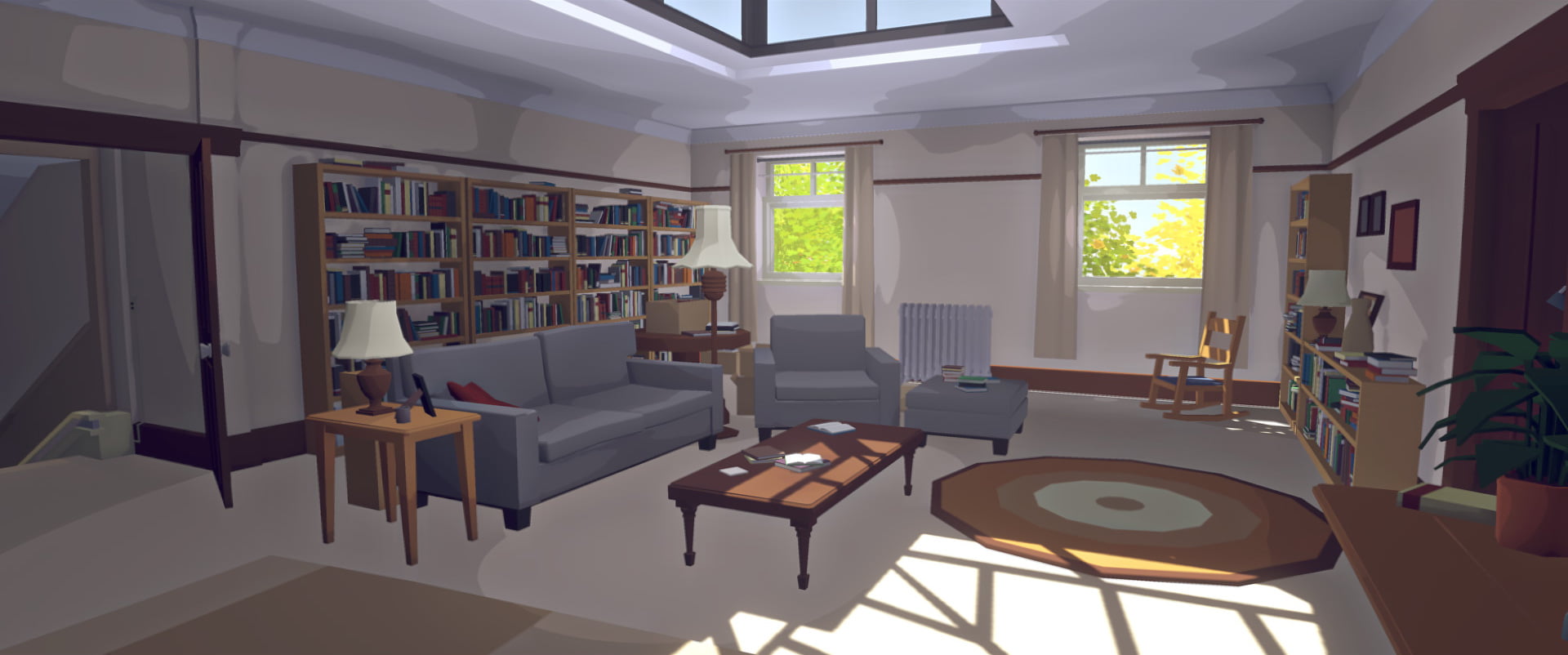 discards all the intervening space and means that you’re just in on things that matter, instead of
discards all the intervening space and means that you’re just in on things that matter, instead of
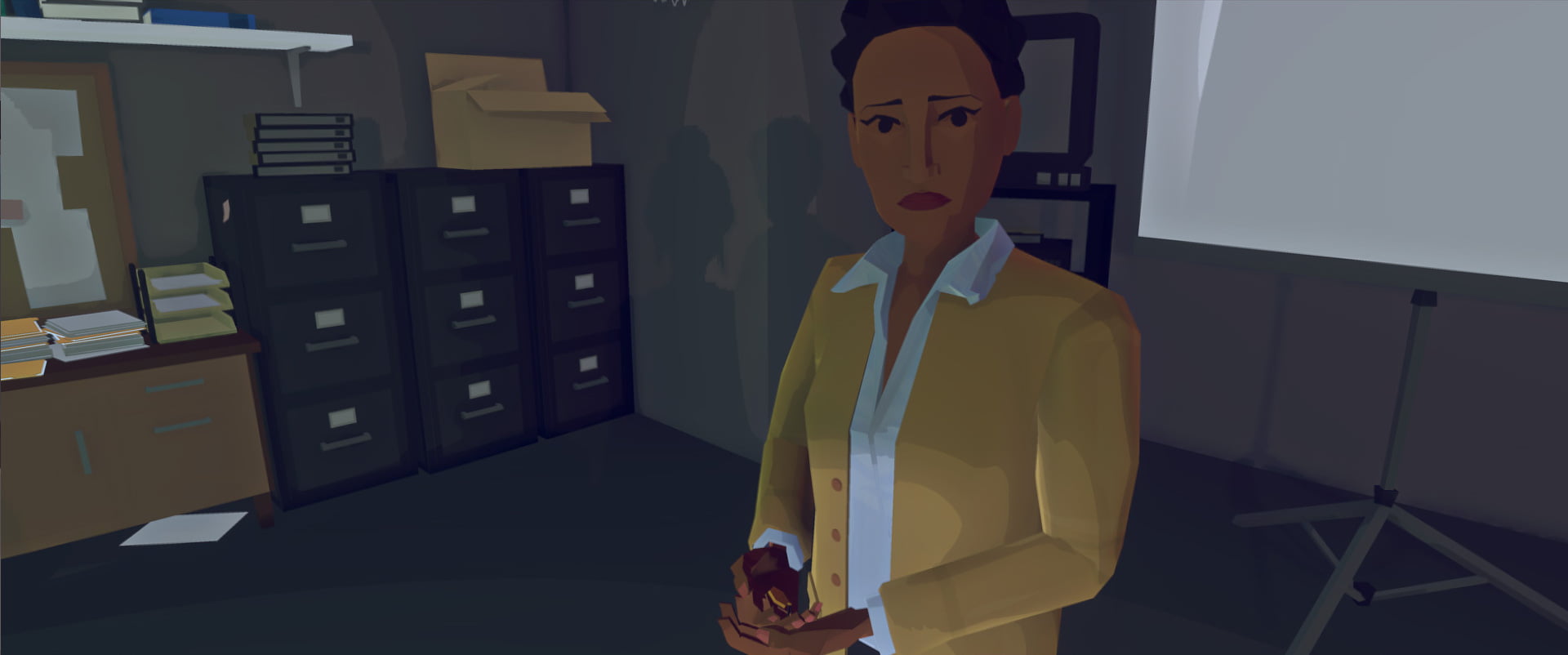
which also means that if you see it or if you hear it or anything like that, then it’s a clear sign that it was something that mattered, rather than just something that the developers had to wedge in, because you know, expected interactions with the world. It’s not like Dishonored, with the maids or Hitman with the strippers, where the game sort of has to know it has an answer for if you point a weapon at them and pull the trigger, because its
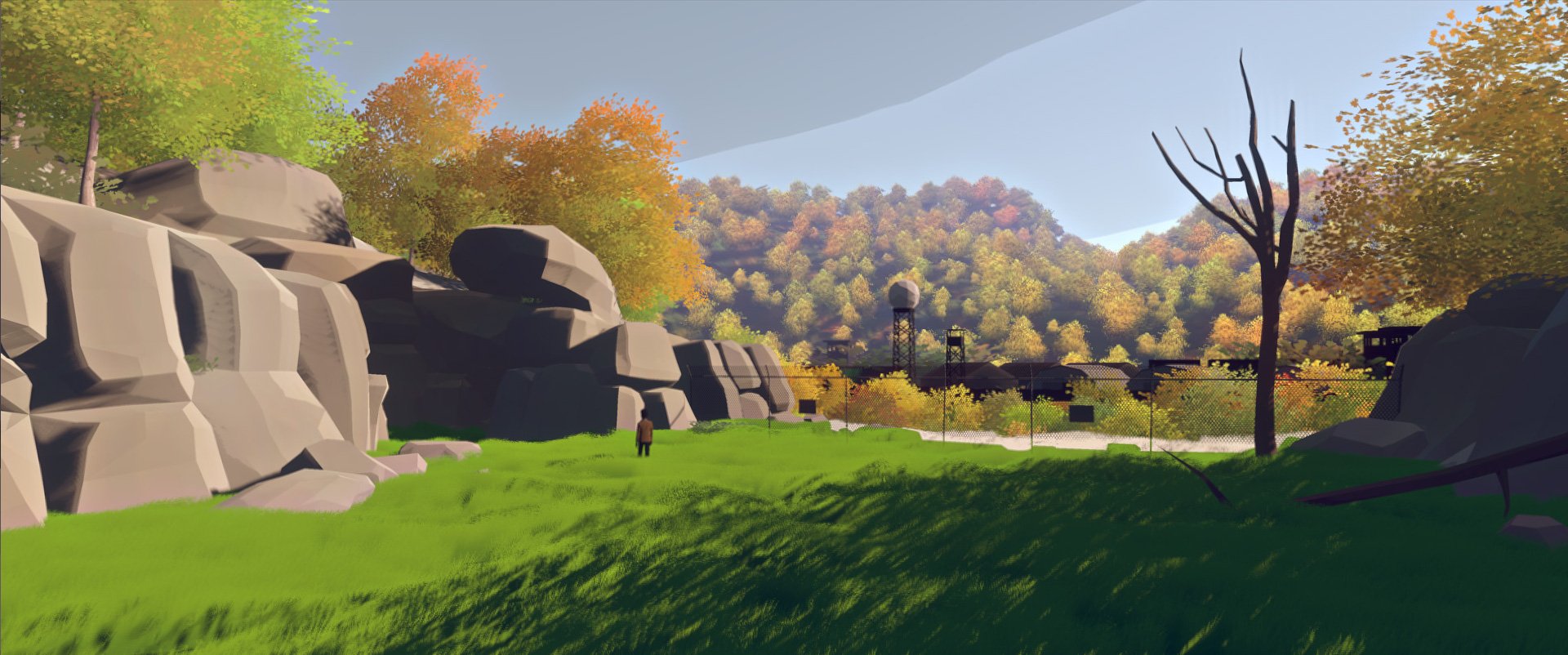
a game that’s almost impossible to meaningfully record, too. I mean, the only thing that I can give you when I play the game, showing me playing it as I find the thing in each series that I can interact with, the small number of things that can come together to advance you to the next scene, is the atmosphere, and that environmental atmosphere is kind of the most important thing the game offers you.
You can hang out on a railing with a drink in your hand and feel the rising summer heat and wait until you’re ready to take the next drink. It might be moments, it might be ten minutes. I’m not going to tell you how quickly you should do things. Listening to the band, hesitating at a door, most of the game of Virginia is spent travelling and waiting, and you only see the bits that matter as part of
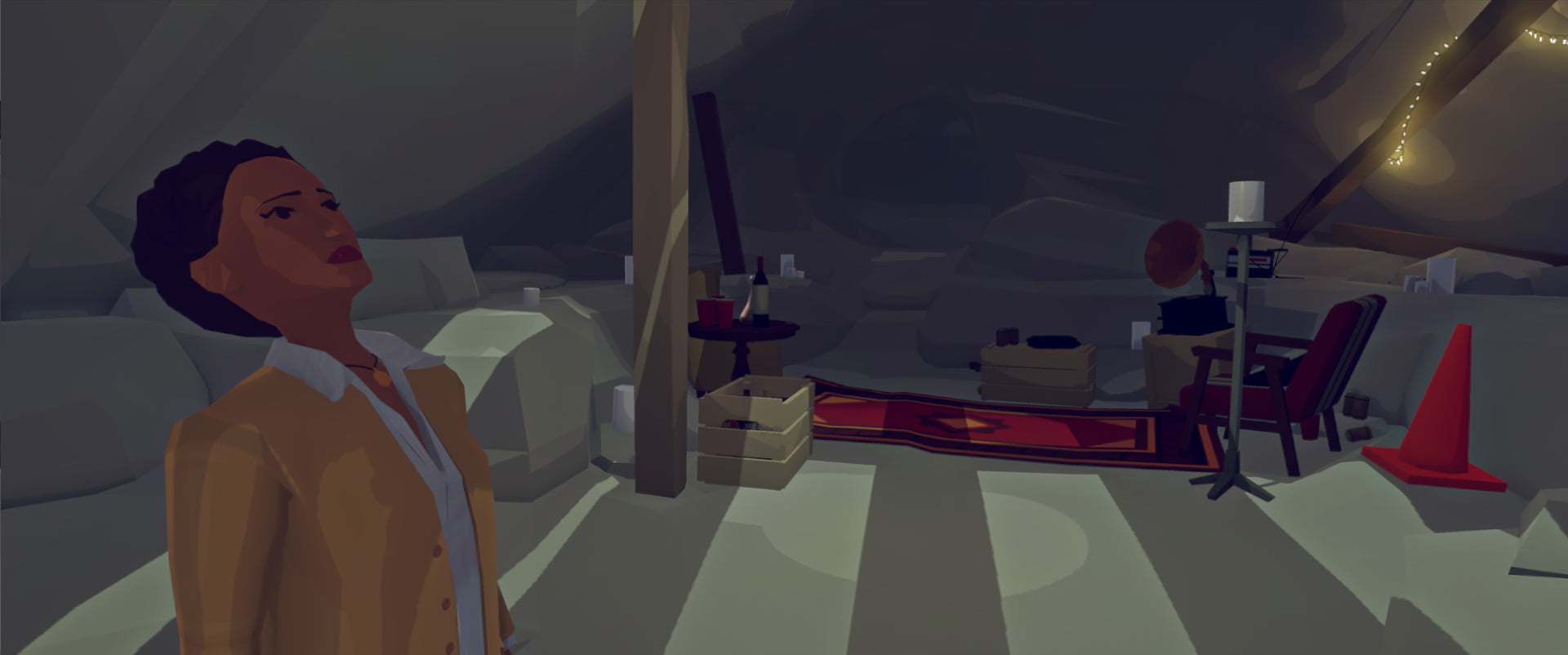
the thing with the linear sequence of cause and effect throughout the game is fascinatingly twisted where every story can be perceived as a sequence of event after event, with earlier events impacting later events, this game makes the structure of a puzzle game blatant and bare, where your actual agency in the world is just limited to finding the next thing the game wants you to find rather than treating the world as this concrete space with puzzles you can ‘solve’
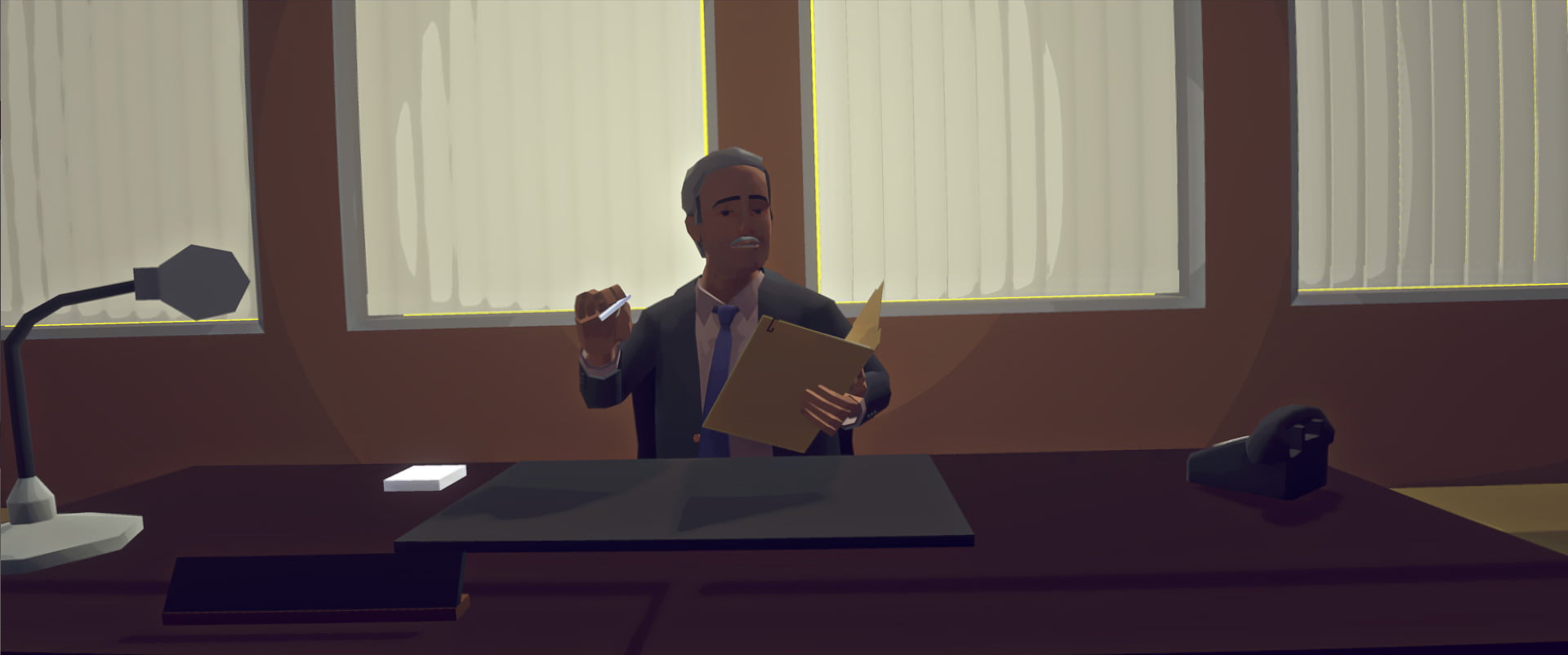
which is further emphasised by the way the game dips between the real and unreal, showing your character dealing with dream sequences and altered realities, but altered realities that are weird enough that you don’t really need to know what’s going on the imagery becomes almost the only way you can thread between the events of the story that you’re seeing around you
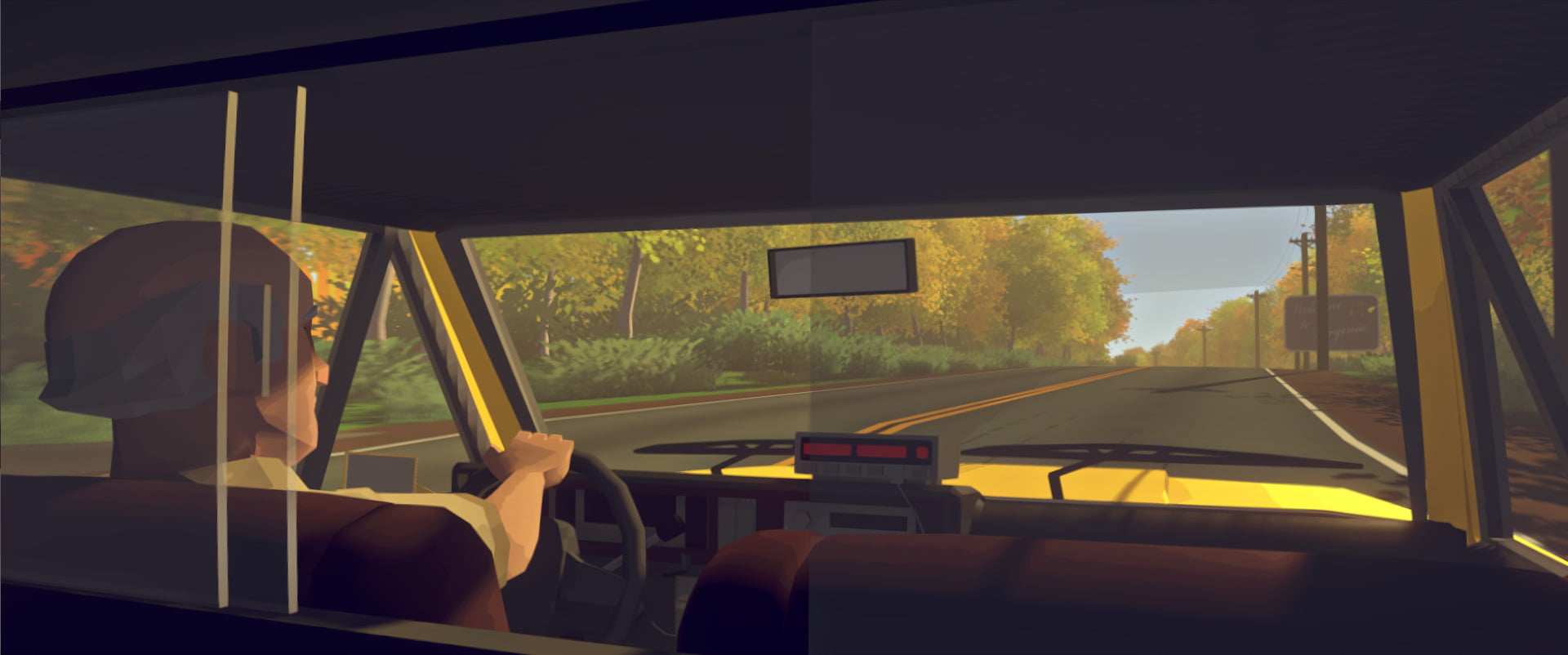
the story shows you a way the story could go but crucially it shows you that you don’t go there, then shows you ways the story might have worked, but doesn’t do anything to convince you it did.
The only definite thing I can tell you about the story of Virginia is that it makes it clear to you how it didn’t end.
Virginia takes about three hours to play.
#fff, 1px -1px 0 #fff, -1px 1px 0 #fff, 1px 1px 0 #fff; -webkit-text-stroke: 1px white; padding: 30px;">Verdict
You can get Virginia on Gog, Steam, and Humble. It’s a pretty unapologetic environmental story game, so if you’re not into that, this isn’t going to be the game that changes your mind. It’s very pretty within its style, with lots of gorgeous shots of a pretty countryside. There is some content to be aware of – drugs, implied sex, maybe some implied homophobia, racism, and scenes of facelessness, blood and non-gory animal harm.
A good comparison is Gone Home. Gone Home has a lot more reading and exploring and incidental narratives you can put together in the story space. This has almost just one, and it’s fairly tight by comparison.
Verdict
Get it if:
- You like atmospheric narrative experiences
Avoid it if:
- You don’t like this entire genre
